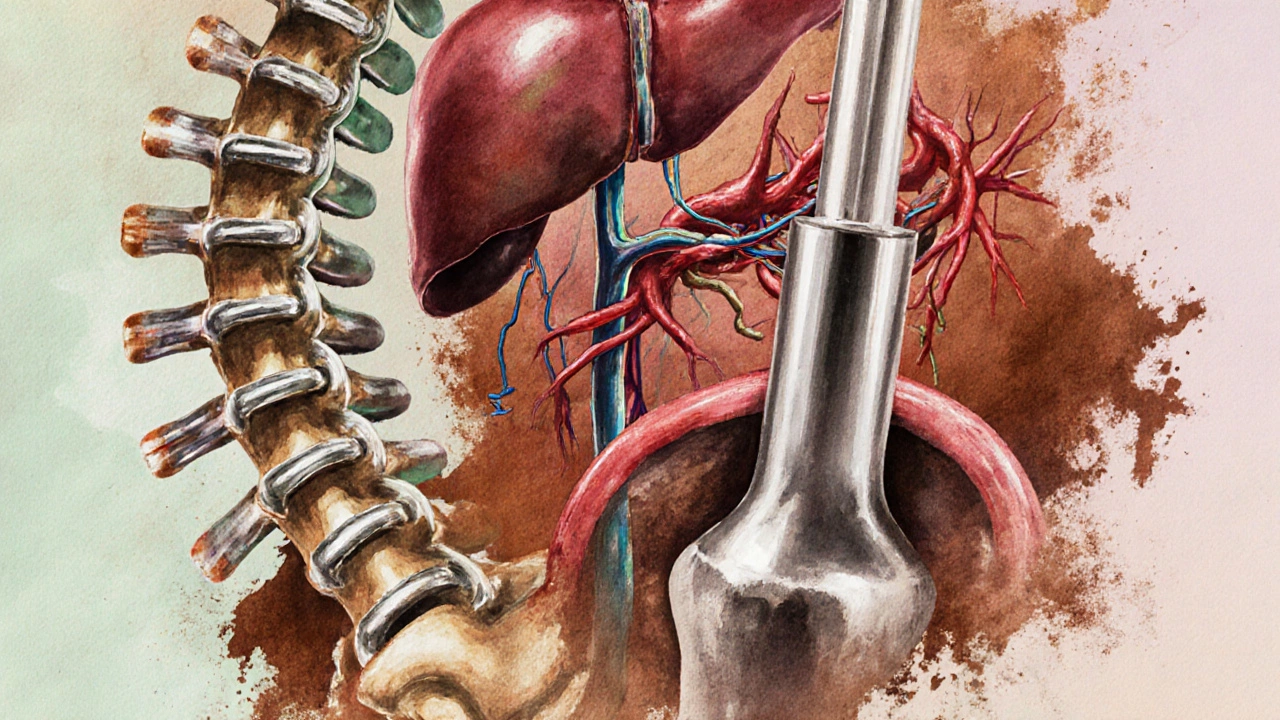
Surgery Recovery & Cost Estimator
Personalize Your Estimate
Answer a few questions to get a realistic estimate for your surgery recovery time and costs.
When it comes to the longest recovery surgery, most people picture a complicated operation and wonder how long they’ll be out of work, when they can walk again, and what the private price tag looks like. The truth is, some procedures can keep you sidelined for months, even a year, and the cost can sky‑rocket when you add private hospital fees, specialist follow‑ups, and rehabilitation. This guide breaks down the surgeries that demand the longest healing periods, explains why recovery can stretch so far, and shows you what to expect financially if you choose a private provider.
Key Takeaways
- Spinal fusion, organ transplants, and major brain surgeries top the list for longest healing times, often 6‑12 months.
- Typical private costs range from NZ$30,000 for a hip replacement to over NZ$200,000 for a liver transplant.
- Age, nutrition, pre‑existing conditions, and rehab intensity dramatically affect how fast you bounce back.
- Planning ahead-insurance, paid time off, and a solid support network-can keep the financial sting manageable.
- Targeted physiotherapy, proper wound care, and realistic goal‑setting are proven ways to shave weeks off a long recovery.
What Influences Recovery Length?
Healing isn’t just about the incision size; it’s a complex dance between your body’s biology and the surgery’s scope. Here are the biggest drivers:
- Invasiveness: Open‑heart or open‑brain procedures cut through muscle, bone, and protective layers, demanding more tissue repair.
- Age and overall health: Older adults or those with diabetes, obesity, or smoking habits experience slower cell turnover.
- Blood supply: Areas with rich circulation (like the liver) recover faster than poorly vascularized zones (spine).
- Post‑operative care: Access to physiotherapy, nutritionists, and wound‑management specialists can halve recovery time.
- Complications: Infections, blood clots, or hardware failure add weeks-or months-to the timeline.
Surgeries That Take the Longest to Heal
Below are the eight procedures that consistently rank at the top for prolonged recovery. Each entry includes a brief definition, typical healing window, and private‑sector cost estimate for New Zealand in 2025.
Spinal Fusion Surgery is a procedure where two or more vertebrae are permanently joined using bone grafts or metal implants. The goal is to stop motion at a painful segment of the spine, often to treat degenerative disc disease or scoliosis. Healing usually takes 6-12 months, with the first three months marked by limited bending and a rigid brace. Private hospitals charge between NZ$40,000 and NZ$70,000, depending on the number of levels fused and the need for navigation technology.
Organ Transplant (Liver) involves replacing a diseased liver with a donor organ. Because the liver is vital for metabolism, the body must adapt to new vascular connections and immunosuppressive therapy. Full recovery can span 9-12 months, with intensive follow‑ups to monitor rejection. Private costs soar to NZ$200,000-NZ$250,000, covering the organ procurement fee, surgical team, and post‑transplant care.
Hip Replacement Surgery replaces the femoral head and acetabulum with prosthetic components. It relieves arthritis pain but requires bone to integrate with the implant. Most patients walk unaided after 6-8 weeks, yet full gait restoration and muscle strength may not be achieved until 4-6 months. Private clinics price this at NZ$30,000-NZ$45,000.
Knee Replacement Surgery swaps damaged knee joint surfaces with metal‑plastic implants. Recovery hinges on regaining quadriceps strength and joint stability. Expect 3-4 months for basic activities, but up to 9 months for high‑impact sports. Private fees range from NZ$35,000 to NZ$55,000.
Coronary Artery Bypass Graft (CABG) creates new pathways around blocked heart arteries using vein or artery grafts. The heart must heal both the sternotomy incision and the graft sites. Patients typically remain in the hospital for 5-7 days, but full cardiac rehab and return to normal work can take 4-6 months. Private costs sit between NZ$45,000 and NZ$70,000.
Craniotomy (Brain Tumor Removal) opens the skull to excise a tumor or abnormal tissue. Brain swelling, seizure risk, and neuro‑rehabilitation extend the healing curve. Recovery spans 6-12 months, with the first 2-3 months focused on motor and speech therapy. Private hospital bills range from NZ$80,000 to NZ$120,000.
Whipple Procedure (Pancreaticoduodenectomy) removes the head of the pancreas, part of the duodenum, and surrounding tissue. It’s one of the most complex abdominal surgeries, demanding careful nutrient absorption management. Patients often need 8-12 weeks before tolerating solid food, and up to a year for full strength. Private cost sits at NZ$70,000-NZ$100,000.
Extensive Burn Surgery with Skin Grafting treats deep‑partial or full‑thickness burns over large body areas. Multiple graft stages, infection control, and scar management lengthen recovery. Full functional recovery can stretch 9-12 months, especially when contractures need release. Private burn centers charge NZ$60,000-NZ$90,000 depending on extent.

Recovery Time vs Cost Comparison
| Procedure | Typical Healing Time | Private Cost (NZ$) | Main Recovery Challenges |
|---|---|---|---|
| Spinal Fusion | 6-12 months | 40,000-70,000 | Limited mobility, brace dependence |
| Liver Transplant | 9-12 months | 200,000-250,000 | Immunosuppression, graft monitoring |
| Hip Replacement | 4-6 months (full) | 30,000-45,000 | Muscle weakness, gait retraining |
| Knee Replacement | 6-9 months | 35,000-55,000 | Quadriceps rehab, swelling |
| CABG | 4-6 months | 45,000-70,000 | Cardiac conditioning, sternal healing |
| Craniotomy | 6-12 months | 80,000-120,000 | Neurological rehab, seizure risk |
| Whipple Procedure | 8-12 months | 70,000-100,000 | Digestive enzyme support, nutritional rehab |
| Extensive Burn Grafting | 9-12 months | 60,000-90,000 | Scar contracture, infection control |
How to Speed Up Healing After Major Surgery
- Start physiotherapy early: Even gentle range‑of‑motion exercises on day2 or3 can prevent stiffness.
- Optimize nutrition: Protein intake of 1.5g/kg body weight, vitaminC, zinc, and omega‑3 fatty acids support tissue repair.
- Control blood sugar: Keep glucose below 140mg/dL to avoid delayed wound healing.
- Quit smoking: Nicotine narrows blood vessels; stopping 2weeks pre‑op halves infection risk.
- Manage pain wisely: Over‑reliance on opioids can slow mobility; combine with NSAIDs and nerve blocks when possible.
- Sleep and stress reduction: Aim for 7-9hours nightly; cortisol spikes hinder collagen formation.

Private Surgery Cost Considerations for Long‑Recovery Procedures
Private health insurance in New Zealand often caps at a certain amount per procedure, but high‑cost surgeries like organ transplants can exceed those limits. Here are three budgeting tips:
- Ask for an itemised quote: Surgeons, anesthetists, ICU stay, and post‑op rehab are billed separately. Knowing each line helps you negotiate or seek supplemental coverage.
- Look for bundled‑care packages: Some private hospitals offer a flat fee that includes physiotherapy and follow‑up imaging, saving up to 15% versus à‑la‑carte pricing.
- Leverage health savings accounts (HSAs) or the New Zealand Superannuation Fund: Pre‑tax contributions can offset out‑of‑pocket expenses without impacting daily cash flow.
Remember, the longest healing time often correlates with the biggest price tag, but planning ahead can prevent surprise bills and keep your recovery focused on getting better, not worrying about money.
Frequently Asked Questions
Which surgery takes the longest to heal?
Organ transplants-especially liver and heart-typically require 9-12 months of intensive recovery, making them the longest‑healing surgeries on average.
How long after spinal fusion can I return to work?
Most patients resume desk‑type jobs after 8-10 weeks, but heavy‑lifting or manual labor usually waits 4-6 months. Full bone fusion can continue up to a year.
Are private hospitals more expensive for long‑recovery surgeries?
Yes. Private facilities charge premium rates for operating‑theatre time, specialized surgeons, and bundled postoperative services. However, they often provide faster scheduling and dedicated rehab teams, which can shorten the overall timeline.
Can I speed up recovery after a major abdominal surgery?
Early ambulation, a high‑protein diet, and respiratory exercises reduce complications. Following a surgeon‑approved activity ladder-starting with short walks and gradually increasing distance-helps rebuild core strength faster.
What insurance options cover expensive transplants in New Zealand?
Many private insurers have a maximum cap per claim, often NZ$150,000. For transplants that exceed this, you may need a supplemental rider, a government‑funded scheme, or a charitable fund to cover the shortfall.